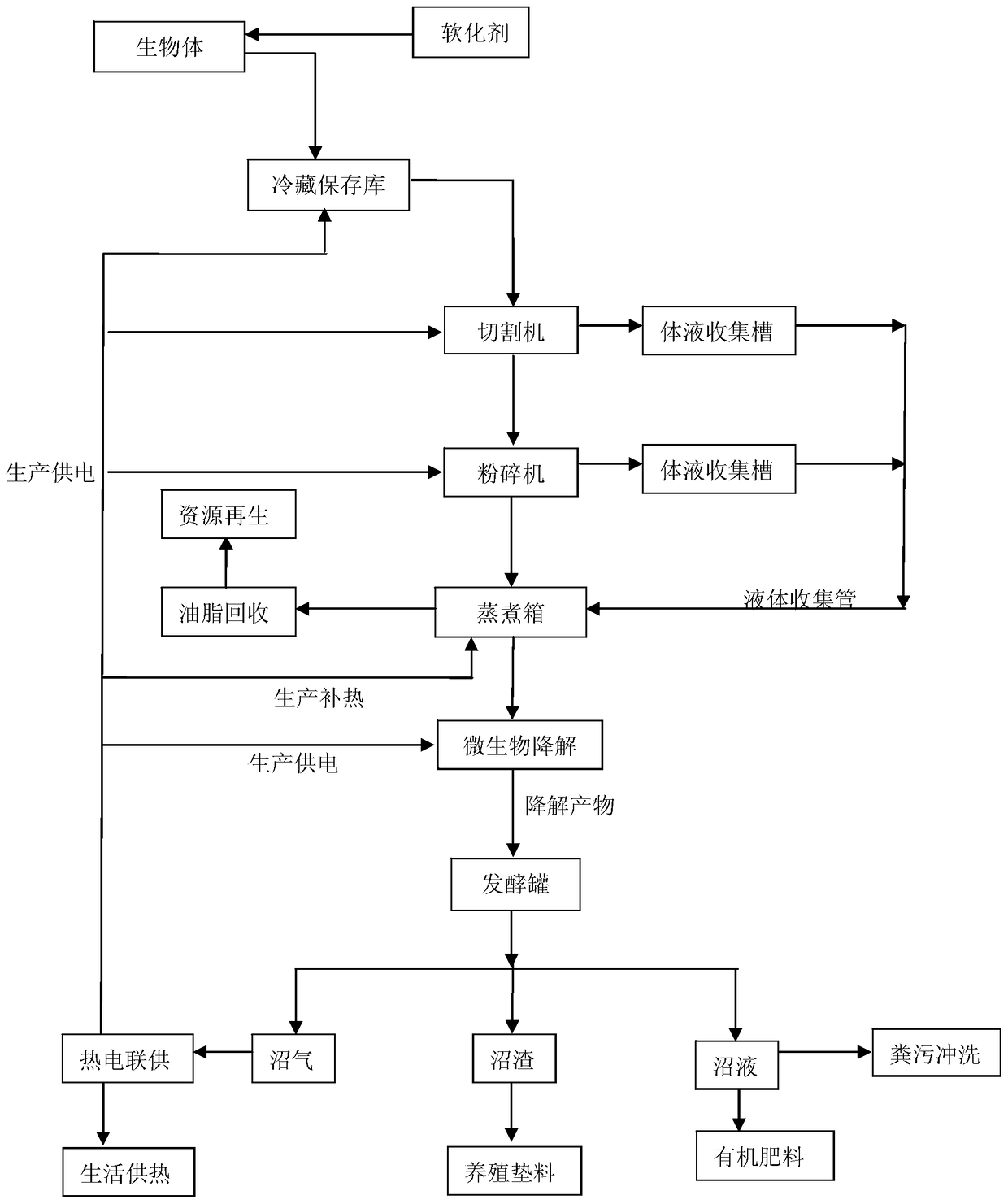Recycling method of waste organisms after death of livestock and poultry animals
A treatment method and resource recovery technology, which is applied in the field of resource recovery of waste organisms after the death of livestock and poultry animals, and achieves the effects of low cost, strong continuity and high degree of harmlessness
- Summary
- Abstract
- Description
- Claims
- Application Information
AI Technical Summary
Problems solved by technology
Method used
Image
Examples
Embodiment 1
[0049] Embodiment 1. The preparation of composite microorganism preparation
[0050] Cultivate Anabaena cyanobacteria alone under sterile culture conditions at 37°C for 1-3 days until the number of bacteria per ml reaches 10 9 ;
[0051] Cultivate Bacillus subtilis alone for 3-5 days under sterile culture conditions at 37°C until the number of bacterial cells per milliliter reaches 10 9 ;
[0052] Cultivate acidophilic lactic acid bacteria alone for 4-5 days under sterile culture conditions at 37°C until the number of bacterial cells per milliliter reaches 10 9 ;
[0053] Cultivate Bacillus megaterium alone for 3-5 days under sterile culture conditions at 37°C until the number of bacterial cells per milliliter reaches 10 9 ;
[0054] Cultivate Bacillus cereus alone for 3-5 days under sterile culture conditions at 37°C until the concentration of bacteria per milliliter reaches 10 9 ;
[0055] Cultivate Bacillus pumilus separately under sterile culture conditions at 37°C ...
Embodiment 2
[0061] Embodiment 2. Recycling of waste organisms after the death of livestock and poultry animals
[0062] Processing object: cattle, 1 head, from dairy farms
[0063] 1. Keep in cold storage
[0064] Spray the softener keratinase (3kg / 1000L) to the dead animals, spray 3L per kilogram according to the weight of the animal, to soften the hair, cortex and cuticle (hoof nails), and facilitate the later microbial degradation. The softened animal carcasses were then placed in a 4°C freezer for 24 hours for cutting and comminution.
[0065] 2. Cutting and crushing
[0066] The dead animals after refrigeration were cut mechanically and disintegrated into small pieces of 70-90 cm (except poultry), so that the animal carcasses were broken into pieces. Then pass through the plate chain conveyor (purchased from Yangzhou Jinmai Conveying Machinery Equipment Co., Ltd.) to enter the primary pulverizer (purchased from Hebei Chengzhu Machinery Manufacturing Co., Ltd.) to be crushed into 6...
PUM
 Login to View More
Login to View More Abstract
Description
Claims
Application Information
 Login to View More
Login to View More - R&D
- Intellectual Property
- Life Sciences
- Materials
- Tech Scout
- Unparalleled Data Quality
- Higher Quality Content
- 60% Fewer Hallucinations
Browse by: Latest US Patents, China's latest patents, Technical Efficacy Thesaurus, Application Domain, Technology Topic, Popular Technical Reports.
© 2025 PatSnap. All rights reserved.Legal|Privacy policy|Modern Slavery Act Transparency Statement|Sitemap|About US| Contact US: help@patsnap.com

